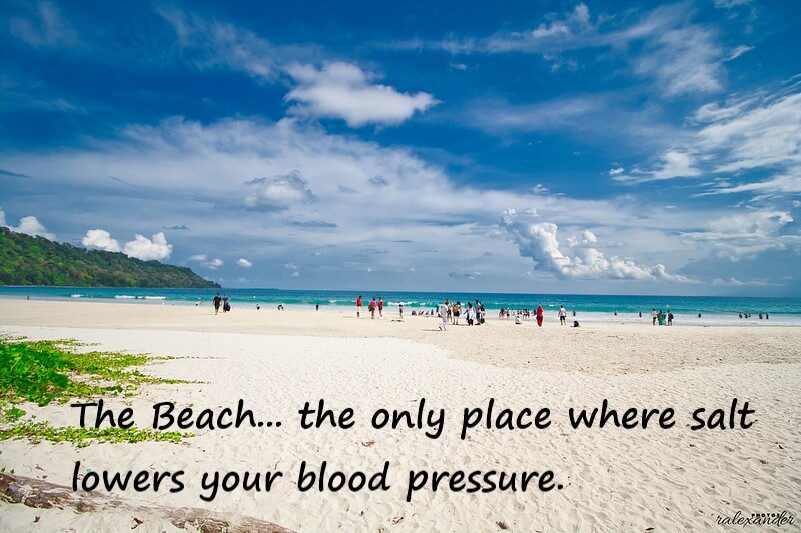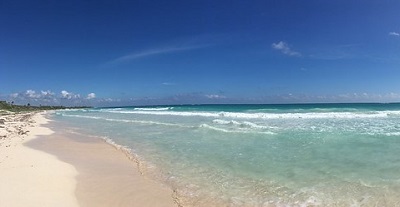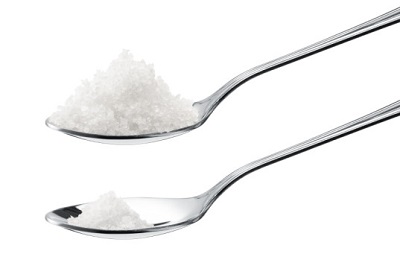
My favorite place to relax and unwind is on the beach at Ocean City, New Jersey. I can feel my blood pressure lowering as I stand at the end of the waves and soak up the sun.
Is there any science to back up that tranquil feeling?
Is it the sun? Could be.
A study published in the Journal of the American Heart Association linked sunshine exposure to lower blood pressure. Blood pressure readings from more than 342,000 patients at nearly 2,200 clinics over three years were recorded, and when the numbers from nearly 46 million blood pressure readings were crunched, the researchers found exposure to UV sunlight was associated with lower systolic blood pressure. (1)
Other studies have indicated that spending more time anywhere outdoors in the sun can lower pressure. What was found is that nitric oxide stored in the top layers of the skin reacts to sunlight and cause blood vessels to widen as the oxide moves into the bloodstream. That, in turn, lowers blood pressure. One study, published in British Journal of Family Medicine, October 2013 was conducted by British researchers at the University of Southampton. They exposed individuals with blood pressure within normal range to ultra violet light. After exposure, those in the study saw a modest decrease in blood pressure levels. Researchers believe that the drop could be even more significant in individuals with elevated blood pressure.
Additional studies have concluded that people with higher levels of Vitamin D (a vitamin linked to sun exposure) experienced lower blood pressure levels and were at lower risk of developing hypertension. According to one study, for every 10 percent increase in vitamin D levels, there was an 8 percent decrease in the risk of developing hypertension.
Is it the waves? Maybe.
 At an American Heart Association’s Council for High Blood Pressure Research conference, a relaxation training program accompanied by the soft sounds of waves lapping on a beach dropped nursing home residents’ systolic blood pressure by about three points and diastolic pressure by 1.5 points. (2)
At an American Heart Association’s Council for High Blood Pressure Research conference, a relaxation training program accompanied by the soft sounds of waves lapping on a beach dropped nursing home residents’ systolic blood pressure by about three points and diastolic pressure by 1.5 points. (2)
Is it the salt water? Probably not.
For many the physical activity of swimming – whether in a pool or the ocean – is relaxing. But neither the National Heart, Lung and Blood Institute nor the Mayo Clinic make any mention of swimming in saltwater decreasing or increasing the risk of high blood pressure. Salt is not able to be absorbed through the skin. Dissolved salts in water become ions, and ions do not easily pass through cellular membranes or human skin to affect blood pressure.
If you are at risk of high blood pressure, a trip to the beach may help. So may decreasing your sodium intake. Salt – really the sodium in salt (sodium chloride) – is prevalent in many of the foods we eat and in excess can be harmful to our health. The 2020-2025 Dietary Guidelines for Americans recommend that Americans consume less than 2,300 milligrams (mg) of sodium per day as part of a healthy eating pattern, but about 90% of Americans are consuming too much. High sodium intake can raise blood pressure, and high blood pressure is a major risk factor for cardiovascular diseases.
Can MSG help? Yes!
If you’re looking to cut back on your sodium intake, your best bet is to stick to foods you make yourself. Scientific studies in line with the most current National Academy of Sciences’ Dietary Reference Intakes for Sodium report list MSG (monosodium glutamate) as one of the tools to help reduce sodium. (3) (4) MSG contains about 800 mg of sodium per teaspoon compared to 2,300 mg in a teaspoon of salt. MSG may be a better seasoning alternative to salt.
Results from a study published in the journal Nutrients provided evidence that glutamates – such as MSG – can be used to reduce sodium in the U.S. food supply. The study analyzed data from the National Health and Nutrition Examination Survey (NHANES), looking at what Americans eat and estimating the reduction in sodium if glutamates are used as a partial replacement for sodium in certain food categories. Findings indicate that the substitution of glutamates for salt can reduce sodium intake by up to 7-8 percent among the total U.S. population.
 MSG is mistakenly thought of as being high in sodium. However, MSG by itself has two-thirds less sodium than table salt (MSG contains approximately 12 percent sodium while table salt contains 39 percent sodium). People are finding MSG to have additional benefits in their diet, and ultimately for their health, by using this safe and effective flavor enhancer to reduce their consumption of sodium. MSG is often an important ingredient for people on a low-sodium diet, because it improves the flavor of a dish while reducing the need for salt. In fact, when MSG is added to meals and recipes (increasing the level of glutamate), sodium levels can be lowered by up to 40 percent while maintaining the desired flavor.
MSG is mistakenly thought of as being high in sodium. However, MSG by itself has two-thirds less sodium than table salt (MSG contains approximately 12 percent sodium while table salt contains 39 percent sodium). People are finding MSG to have additional benefits in their diet, and ultimately for their health, by using this safe and effective flavor enhancer to reduce their consumption of sodium. MSG is often an important ingredient for people on a low-sodium diet, because it improves the flavor of a dish while reducing the need for salt. In fact, when MSG is added to meals and recipes (increasing the level of glutamate), sodium levels can be lowered by up to 40 percent while maintaining the desired flavor.
A popular saying, attributed to Isak Dinesen, is “The cure for anything is salt water – sweat, tears, or the sea.” While that may be an oversimplification, my recommendation for well-being includes time at the beach and a healthy diet.
Do consider MSG as a helpful option for reducing the sodium content in your recipes! When a recipe calls for salt, try instead a blend of one-third MSG and two-thirds salt, which will provide the desired flavor boost while decreasing sodium significantly.
(1) https://www.ahajournals.org/doi/10.1161/JAHA.119.013837
(2) https://www.sciencedaily.com/releases/2008/09/080917175031.htm
(3) https://www.mdpi.com/2072-6643/11/11/2691
(4) https://www.ncbi.nlm.nih.gov/books/NBK50956/
Photos courtesy of ralexander Photos (featured image) and Nate Steiner (ocean waves)

